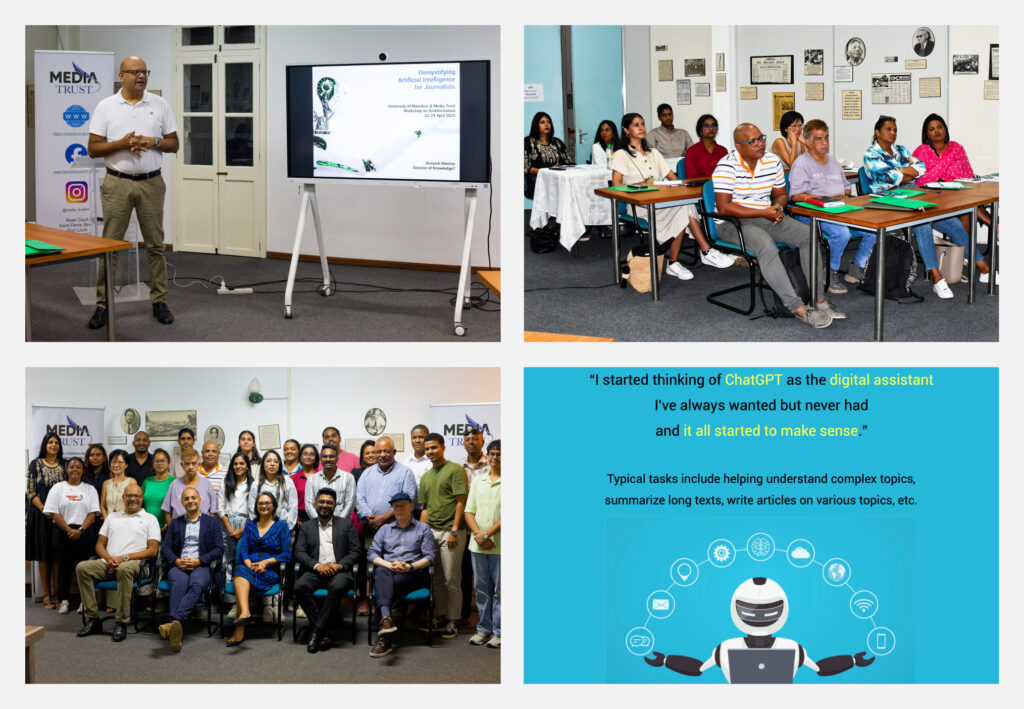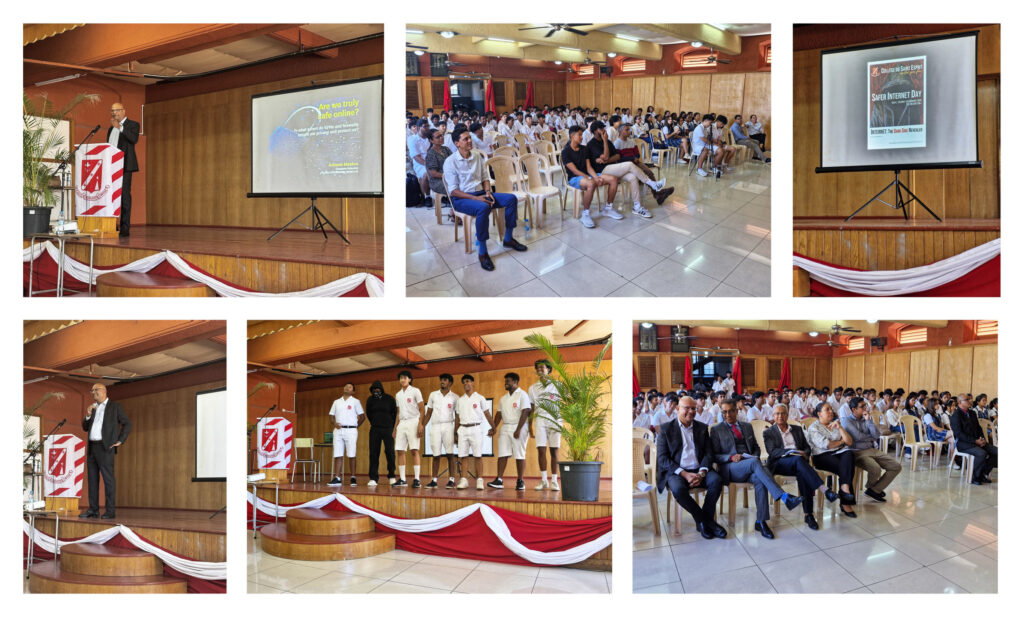
On Thursday 24 April 2025, I had the opportunity to speak at a workshop on disinformation held at the Media Trust and organised by the University of Mauritius with support from the French Embassy. The event brought together around 25 professional and student journalists. My presentation focused on Artificial Intelligence, Large Language Models (such as ChatGPT) and how these tools can support journalists in their daily work.
Over the course of two hours, I covered a range of topics including the history of AI, its relevance to Mauritius, highlighting the 2018 release of the national AI strategy and the launch of ChatGPT to the public in 2022. I also discussed the rapid evolution of AI models and the ethical implications of using LLMs in professional settings. At the core of my message was the idea that AI tools like ChatGPT, when used thoughtfully, can serve as valuable digital assistants for journalists.
I introduced prompt engineering to the audience, emphasizing how crafting effective inputs can significantly enhance the usefulness of LLMs. We explored different prompt formats, ranging from instructional and role-based prompts to more advanced types such as chain-of-thought and examples-driven prompts. Attendees actively participated, experimenting with prompts in real time on their phones and laptops.
I also demonstrated how AI can be used to analyse structured data, such as spreadsheets, and generate images using prompts. Toward the end, I touched on more advanced topics like temperature settings and tokens, and we reflected on how AI might continue reshaping journalism and society at large.
I would like to extend my heartfelt thanks to Christina Meetoo for inviting me and for organising this workshop on behalf of the University of Mauritius. It was a pleasure to be part of such a knowledgeable team of trainers, including Carina van Wyk from Africa Check, Rabin Bhujun, Jean-Luc Mootoosamy, Abdoollah Earally, Muzzamil Hosenally, Matthew Lamport, and of course, Christina herself. A special thanks also goes to Adrien Schwarz from the French Embassy, and to Shehzad Ali Joomun and Kannen Kathapermall from the Media Trust, for making this excellent initiative possible.

